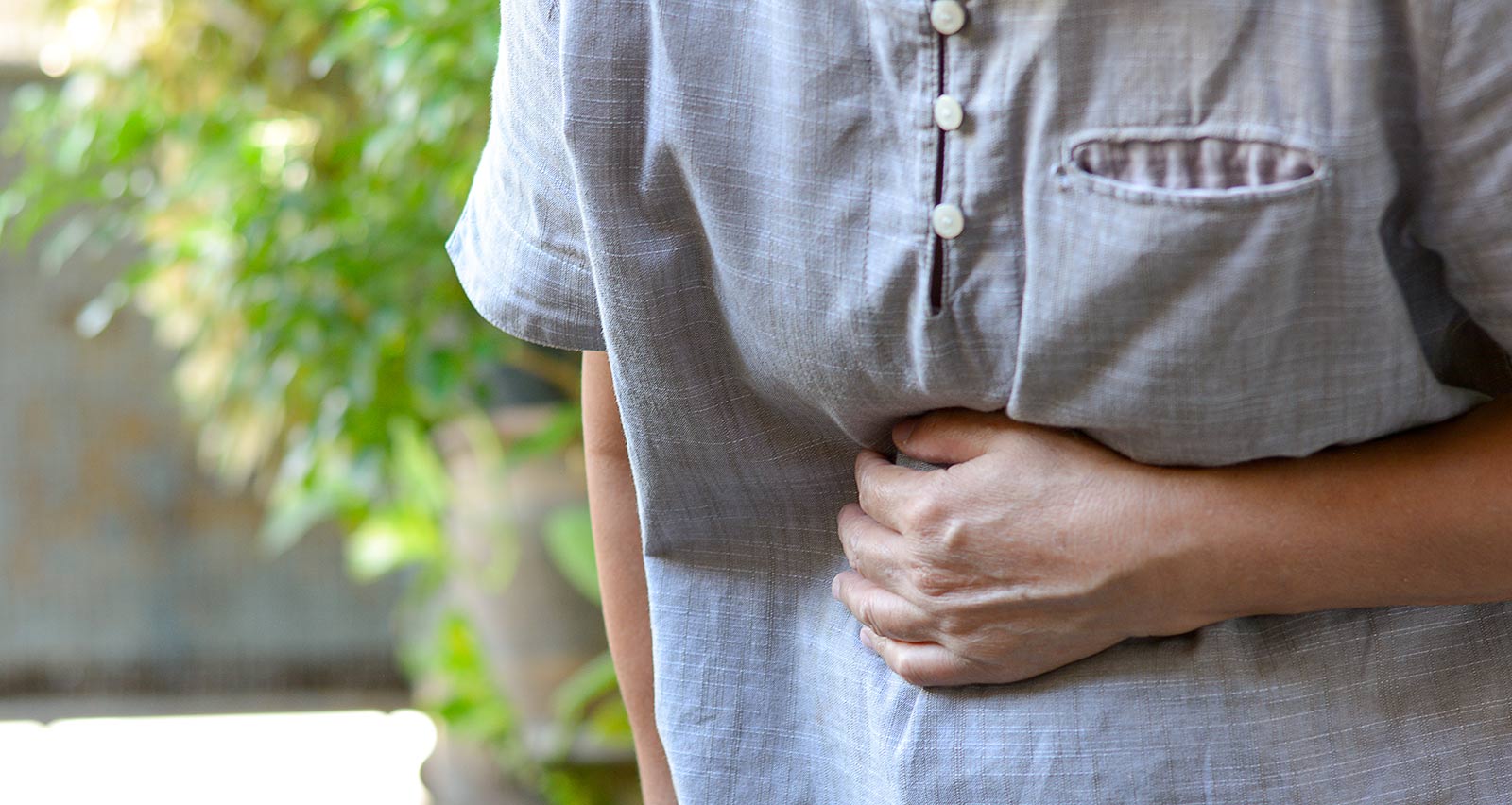
Eosinophilic esophagitis (EoE) is a chronic immune disease that is caused by the buildup of eosinophils – a certain type of white blood cell – in the lining of the esophagus. This overproduction of eosinophils can be caused by an allergic response by the body to certain foods or other allergens or by acid reflux disease. Untreated, EoE can cause damage and inflammation that can lead to scarring and narrowing of the esophagus. The retching that is sometimes associated with food being stuck in the throat, may also lead to tears or perforations in the esophagus.
Your health is important. Get expert care.
To schedule an in-person or virtual consultation with a UH digestive health specialist, call 1-866-UH4-CARE.
Find a DoctorEosinophilic esophagitis can occur in adults and children. In adults, the most common symptoms include:
- Difficulty swallowing solid and liquid foods
- Food getting stuck in the esophagus
- Intermittent chest pain that can range from mild to intense
- Stomach pain
- Bitter taste due to undigested food backing up into the mouth
- Heartburn
Risk factors for Eosinophilic Esophagitis (EoE)
Studies suggest that as the incidence of allergies and asthma grows, cases of eosinophilic esophagitis are becoming increasingly common. This means that people with food or environmental allergies or asthma, may be at greater risk for developing EoE, particularly during the spring and fall when pollen and other allergen levels are high. Additional risk factors may include:
- Living in a cold dry climate
- Gender – Eosinophilic esophagitis is more common in men than women
- Family history – If someone in your family has eosinophilic esophagitis, you may have a greater chance of getting it as well

Advanced Diagnostic Testing for Eosinophilic Esophagitis
If your symptoms suggest you may have eosinophilic esophagitis, your UH esophagus specialist may perform a variety of tests to confirm the diagnosis and look for what allergens may be causing the condition. He or she will also try to determine if you have gastroesophageal reflux disease (GERD) which can be a contributing factor to EoE.
You may be prescribed one or more of the following tests:
- Upper endoscopy
-
For this test, your doctor inserts a long, flexible tube called an endoscope through your mouth and down your esophagus. Using the light and camera attached to the end of the endoscope, your doctor can view the inside of your esophagus and look for abnormalities that might indicate eosinophilic esophagitis. This test is not definitive, however, as some people with EoE may not have any visible abnormalities.
- Biopsy
-
Also using an endoscope, your doctor will take several samples of tissue from your esophagus that will be examined under a microscope to check for the presence of eosinophils.
- Blood tests
-
Blood tests may be ordered to check for eosinophils and other cells that may indicate an allergy.
UH Esophagus Specialists Offer Advanced Treatments for EoE
Most people diagnosed with eosinophilic esophagitis will require ongoing treatment to manage their disease and its symptoms. Treatments may include:
- Dietary therapy
-
Food allergies usually play a role in your disease, so your doctor may first advise you to avoid certain foods to reduce inflammation and determine which food groups are triggering the inflammation. The Six Food Elimination Diet is the most common way to identify and treat EoE.
- Medications
-
Acid blockers like proton pump inhibitors (PPI) are often successful at improving symptoms of EoE. Topical steroids are used if you don’t respond to the PPI. This is a type of steroid that is swallowed but not absorbed into the bloodstream so it is unlikely to cause any side effects.
- Esophageal dilation
-
This is an endoscopic procedure done under sedation. It is most often used when the esophagus is narrowed due to inflammation and/or scarring. The doctor uses a dilating balloon or plastic dilators to stretch and widen the narrowed section of your esophagus so that swallowing is easier.
Your health is important. Get expert care.
To schedule an in-person or virtual consultation with a UH digestive health specialist, call 1-866-UH4-CARE.


